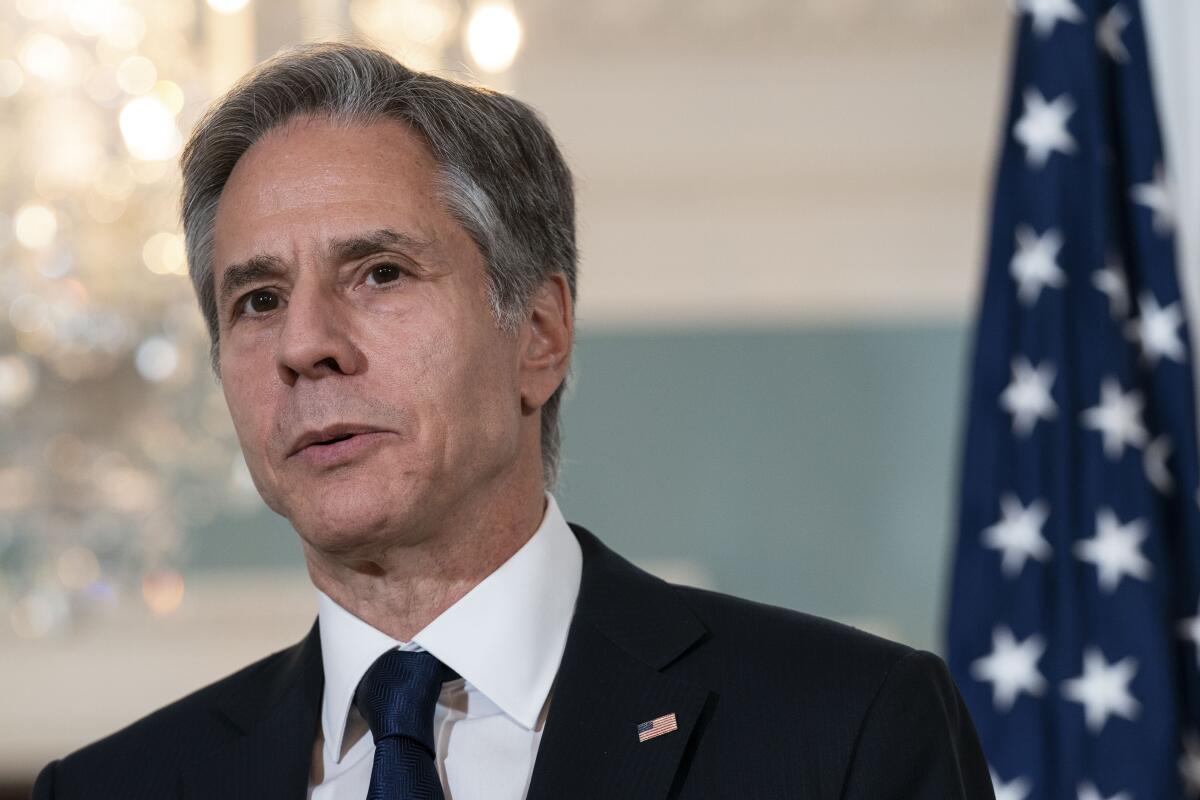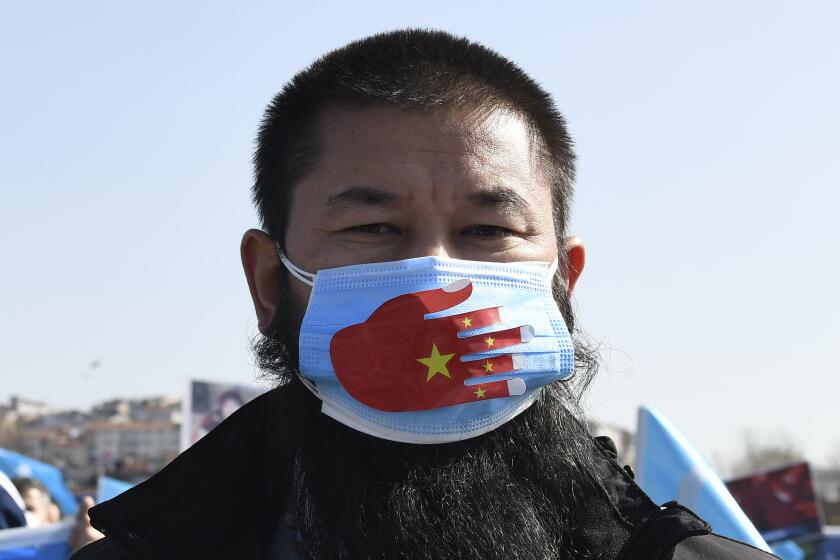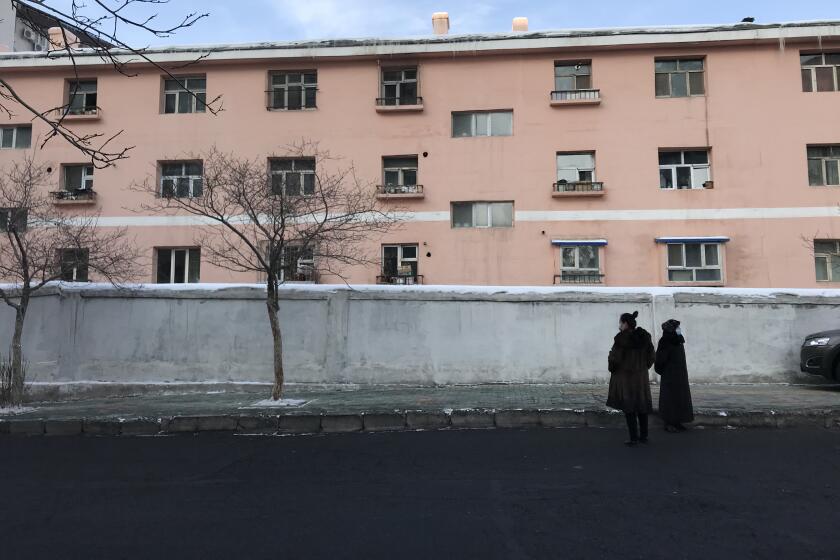Blinken meets Uyghur ex-detainees and seeks ways to pressure China to stop repression

- Share via
WASHINGTON — Secretary of State Antony J. Blinken met virtually on Tuesday with Uyghur Muslims who were detained at camps in China’s Xinjiang region to hear about their experiences and seek advice on how best to pressure China to halt repression there.
The State Department said Blinken wanted to hear directly from the seven former detainees, relatives of others and advocates about conditions that they and the Uyghur community more broadly face.
“The secretary thought it important to meet with these individuals to hear firsthand their stories, to hear firsthand their impression of the ongoing atrocities in Xinjiang and the internment of a million Uyghurs,” department spokesman Ned Price said. “Also, it’s an opportunity for these participants to offer any recommendations they may have.”
China has come under severe international criticism and sanctions for detaining more than 1 million Uyghurs and and other minorities for political reeducation in Xinjiang.
Price said the meeting showed continuity in American policy on the matter between the widely divergent Biden and Trump administrations.
Both administrations have termed the campaign in Xinjiang a “genocide” and slapped sanctions on China for human rights abuses. Former Secretary of State Michael R. Pompeo met several times with Uyghur ex-detainees during his tenure as America’s top diplomat.
The Chinese government uses fear, division and propaganda to suppress discussion on Xinjiang, as it claims that all citizens support its policies.
“America has spoken out very clearly and consistently about the abuses, about the atrocities, about the ongoing genocide that is taking place in Xinjiang,” Price said. “And, as we deem appropriate, I suspect we’ll be employing additional tools going forward to hold to account those officials responsible for what has taken place there.”
Since the Trump administration, the U.S. has steadily ramped up pressure on China on a number of fronts, notably over repression in the northwestern province of Xinjiang and a clampdown on political dissent and human rights in Hong Kong. Those have included travel bans, financial sanctions and commercial restrictions on Chinese imports to the U.S.
A vast system of Chinese surveillance, detention, cultural erasure and forced labor has devastated the Uighur people in Xinjiang, their homeland.
More to Read
Sign up for Essential California
The most important California stories and recommendations in your inbox every morning.
You may occasionally receive promotional content from the Los Angeles Times.












